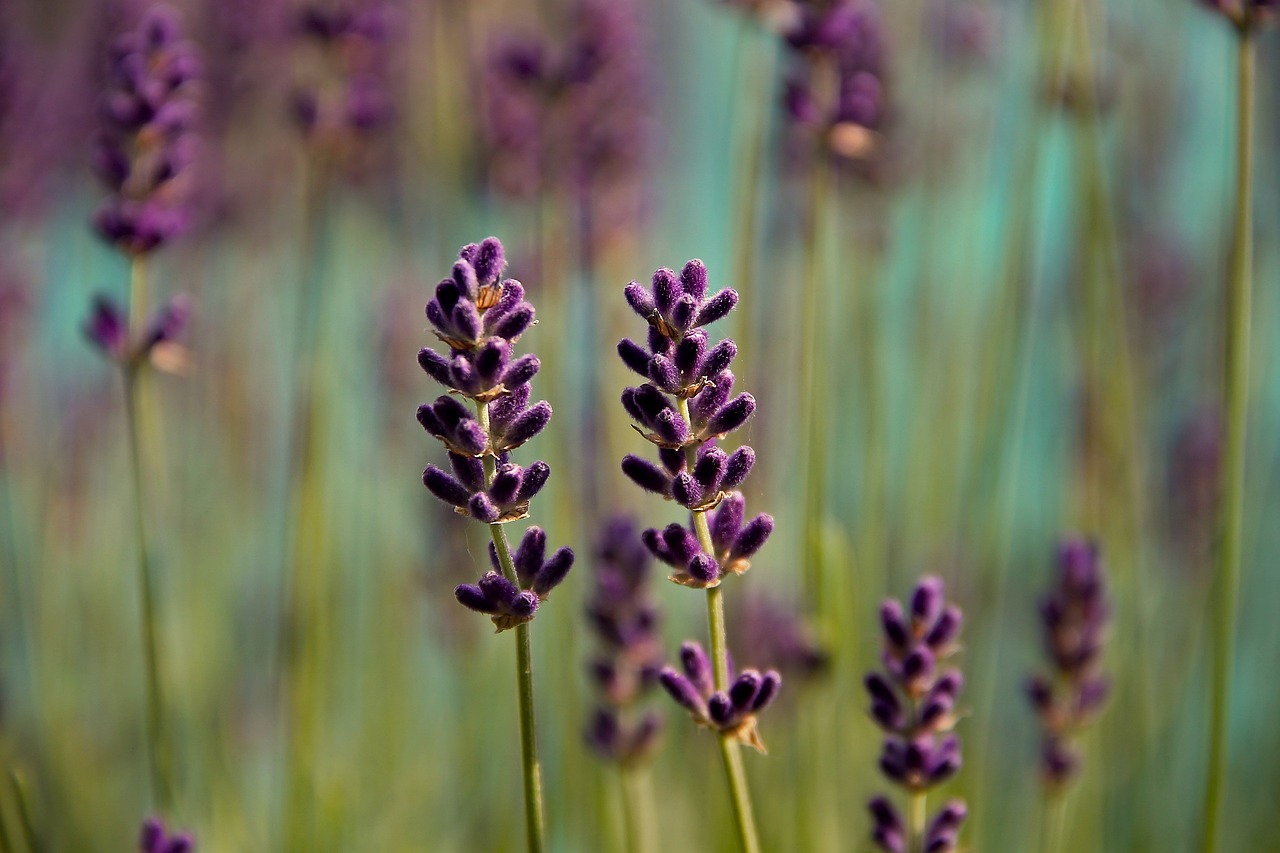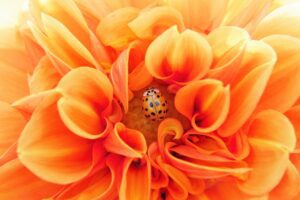What Plants Keep Flies Away. Dealing with flies in your house can be frustrating and unpleasant. While there are many ways to control these pests, from bug sprays to fly swatters, adding plants that repel flies is an effective and natural solution.
By incorporating these fly-repelling plants into your home and garden, you can deter flies and enjoy a fly-free living environment. Discover natural ways to repel flies and learn about the effectiveness of different fly repellent plants.
Key Takeaways
- Using plants to repel flies is an effective and natural solution.
- There are many different plants that are known to repel flies, including lavender, rosemary, basil, marigolds, and citronella.
- Incorporating these plants into your home and garden can help keep flies away and provide a pleasant aroma to your surroundings.
- By using natural fly control solutions, you can avoid the use of harsh chemicals and enjoy a healthier living environment.
- Experiment with different plants and techniques to find the best natural fly control solution for your needs.
Understanding the Benefits of Fly-Repelling Plants
If you’re tired of pesky flies invading your living spaces, it’s time to consider using fly-repelling plants. These plants are a natural and effective way to deter flies from entering your home and garden. By planting plants that deter flies, you can reduce the need for chemical insecticides and enjoy a pest-free environment.
One major benefit of using fly-repelling herbs is that they are safe for you and your household pets. You won’t have to worry about harmful chemicals affecting your health or the environment. Additionally, fly-repelling plants are often easy to care for and low maintenance.
Some popular fly-repelling herbs include basil, lavender, rosemary, and citronella. These herbs contain natural compounds and oils that flies find unappealing, making them an effective way to control flies. By incorporating these plants into your garden or placing them in pots around your home, you can naturally repel flies and keep your living spaces clean and fly-free.
Lavender and Its Fly-Deterrent Properties
Lavender is not only prized for its sweet fragrance and calming properties, but it also has the ability to act as a natural fly deterrent. This beautiful plant contains compounds that flies find offensive, making it an excellent choice for natural fly control.
To maximize its effectiveness, plant lavender in sunny areas around your home and garden. You can also use dried lavender in sachets or as a room spray to keep flies away indoors.
Lavender is easy to care for and thrives in well-drained soil and full sun. Prune it regularly to encourage bushy growth, and enjoy its lovely purple blooms while keeping pesky flies at bay.
Other fly deterrent plants you can incorporate into your natural fly control strategy include citronella, rosemary, and nasturtiums. By using a combination of these plants, you can create a fly-free living environment that is both beautiful and functional.
Rosemary: An Herb That Keeps Flies Away
If you’re looking for a versatile herb that not only adds flavor to your cooking but also acts as a powerful fly deterrent, then rosemary is the perfect solution. This herb is known for its aromatic fragrance, but its fly-repelling abilities are equally impressive.
Planting rosemary around your home can keep flies away while adding a beautiful touch of greenery to your garden. The scent of rosemary is pleasant to humans, but flies find it repulsive, making it an excellent natural deterrent.
One of the best ways to use rosemary for fly control is to strategically plant it around your patio or outdoor living space. The herb’s scent will help repel flies and create a pleasant aroma around your home. You can also use rosemary sprigs in your kitchen or keep potted plants indoors to deter flies from entering your living space.
| Herb Name | Fly-Repelling Ability |
|---|---|
| Rosemary | Strong |
Rosemary is also a popular ingredient in homemade fly repellent sprays. To create a simple and effective fly repellent, combine rosemary essential oil with water and spray around your home or outdoor living space. This will keep flies at bay and provide a natural solution to fly control.
Overall, rosemary is a fantastic herb to have on hand for both cooking and fly control purposes. Its natural fly-repelling abilities make it an excellent addition to any home or garden seeking to deter flies.
The Power of Basil in Fly Control
If you’re looking for a natural way to repel flies, basil is a great place to start. This herb has been used for centuries for both culinary and medicinal purposes, and its fly-repelling properties have been well-documented.
There are several types of basil, but the most effective for fly control are lemon basil and cinnamon basil. These varieties contain oils that flies find repulsive, making them less likely to stick around your living spaces.
To incorporate basil into your natural fly control routine, you can plant it in your garden or place potted basil plants on your windowsills or patio. You can also use fresh basil in your cooking, which will release its fly-repelling scent into the air.
If you want to create an even stronger fly-repelling effect, you can make a basil-infused fly spray. Simply blend fresh basil leaves with water and strain the mixture through a cheesecloth. Pour the liquid into a spray bottle and spritz it around the areas where flies are most prevalent.
Overall, incorporating basil into your natural fly control routine is an effective and pleasant-smelling solution. Try planting some today and enjoy a fly-free living environment.
Marigolds: The Bright Solution to Fly Problems
Marigolds are popular flowers known for their bright colors and ability to keep pests, including, flies at bay. They possess a distinct smell that flies find repulsive, making them an excellent choice for planting in and around your home. These flowers are also easy to maintain, making them perfect for beginners in gardening.
Marigolds are also known to attract beneficial insects like ladybugs that prey on pests. As such, planting them in your garden can help deter flies and other pests while still maintaining a healthy ecosystem.
When planting marigolds, it’s essential to note that they thrive in sunlight and well-draining soil. Ensure that the soil is adequately watered but not waterlogged, as this can lead to root rot. Deadheading the flowers (removing the spent flower heads) will also help them bloom continuously and maintain their fly-repelling properties.
If you don’t have space in your garden, marigolds can be planted in pots and placed near windows and doors to keep flies out. By adding marigolds to your gardening arsenal, you can enjoy the beauty of their bright colors while keeping flies and other pests away from your home.
Citronella: An Effective Fly-Repelling Essential Oil
If you’re looking for a natural way to repel flies during outdoor gatherings and activities, citronella is a popular essential oil that can do the trick. Citronella plants contain a compound called citronellal, which gives off a strong smell that flies find unpleasant.
Citronella can be used in a variety of ways to repel flies. You can plant citronella in your garden or add the essential oil to candles or diffusers. It’s important to note that while citronella can be effective in keeping flies away, it may not work as well in windy conditions or large outdoor areas.
To maximize the effectiveness of citronella in fly control, it’s best to place the plants or candles strategically around your outdoor space. You can also combine citronella with other fly-repelling plants, such as lavender or basil, for a more powerful natural fly control solution.
If you are using citronella essential oil, be sure to follow proper dilution and application guidelines. Undiluted essential oils can be irritating to the skin and eyes.
Nasturtiums: A Natural Fly Control Solution
For those looking for a natural way to keep flies out of their garden and home, nasturtiums are a colorful and effective solution. These fly-repelling flowers not only add beauty to your space but can also help deter pesky insects with their peppery aroma.
Nasturtiums are easy to grow and can be planted in pots or directly in the ground. They thrive in full sun and well-draining soil, making them a great addition to any garden or outdoor space.
In addition to their fly-repelling properties, nasturtiums are also edible and can be used in salads or as a garnish. Their leaves and flowers are rich in vitamin C, making them a healthy and versatile addition to your diet.
To maximize the effectiveness of nasturtiums in fly control, consider planting them around the perimeter of your garden or near entrances to your home. Their bright colors and unique scent will not only keep flies at bay but will also add a pop of color to your space.
Overall, nasturtiums are a natural and beautiful solution to pesky fly problems. Incorporating these fly-repelling flowers into your garden and home can provide a natural way to keep your space fly-free while adding a touch of color and flavor to your life.
Conclusion
By now, you have discovered the various plants and herbs that can naturally repel flies and keep your home and garden fly-free. Incorporating these natural fly control solutions into your living spaces can help you ditch harsh chemicals and pesticides, and enjoy a more sustainable and eco-friendly lifestyle.
Whether you choose to plant lavender, rosemary, basil, marigolds, nasturtiums, or citronella, these fly-repelling plants are not only effective but also beautiful additions to your surroundings. You can enjoy the aroma of lavender, the flavor of rosemary, the bright colors of marigolds and nasturtiums, and the calming properties of basil while keeping pesky flies away.
So why not give it a try? Start planting today and say goodbye to flies and other annoying flying insects. With these natural fly control solutions, you can enjoy a bloom-filled, fly-free home and garden all year round.
FAQ
What plants can keep flies away from my home?
Some plants that are known to repel flies include lavender, rosemary, basil, marigolds, and nasturtiums. These plants emit scents that flies find unpleasant, helping to keep them away from your home.
Are there any natural ways to repel flies?
Yes, using fly-repelling plants is a natural and effective way to deter flies from entering your home. Additionally, essential oils such as citronella can be used to repel flies outdoors.
How effective are fly repellent plants?
Fly repellent plants can be quite effective in deterring flies from your home. However, it is important to note that their effectiveness may vary depending on factors such as the specific plant, outdoor conditions, and the severity of the fly problem.
Can I use these plants indoors?
Some of these plants can be grown indoors, such as lavender and basil. However, it is important to ensure that they receive adequate sunlight and proper care to thrive indoors.
How should I use these plants to repel flies?
To use these plants to repel flies, you can strategically place them in areas where flies are commonly found, such as near windows and entrances. You can also crush the leaves or use their essential oils to create a more intense scent that flies find repellant.
Are these plants safe for pets?
While most of these plants are safe for pets, some can be toxic if ingested in large quantities. It is always best to research specific plants and consult with a veterinarian if you have concerns about your pets’ safety.
Do fly-repelling plants require a lot of maintenance?
Generally, fly-repelling plants are relatively low-maintenance. However, like any plant, they require regular watering, adequate sunlight, and occasional pruning to ensure their health and effectiveness.
Can I use these plants in my garden?
Absolutely! These plants can be a beautiful addition to any garden while also serving as effective natural fly control solutions. Plant them strategically to create a fly-free environment in your garden.
Will these plants repel all types of flies?
Fly-repelling plants are effective against many common types of flies. However, it is important to note that some species of flies may be more resistant to certain plant scents. It may require a combination of different fly control methods for complete effectiveness.





Pingback: Discover What Plants Repel Mosquitoes Naturally at Home - Botanic Plant Life
Pingback: Discover: Are Plants Growing in Antarctica?
Pingback: Understanding What Plants Are Poisonous to Dogs - Stay Informed! - Botanic Plant Life